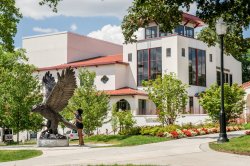2017 CHD SUMMER DIGITAL HUMANITIES GRANT AWARDEES
PROJECT GRANTS
Project grants are grants given by the government or organization to fund research projects.
SEED GRANTS
Seed grants are usually small amounts of money given that may be internal or external sourced.
Two Project Grants were awarded in 2018:
Project Title – Multiplied Lives: A First Look into Smartphone Usage and How Refugees Digitally Navigate Resettlement
Faculty Awardees – Dr. Katherine McCaffrey (Anthropology) & Dr. Maisa Taha (Anthropology)
Project Description – This grant supported four weeks of pilot research with Syrian and Iraqi refugee families who were resettled in northern New Jersey within the last one to three years. Our purpose was to examine everyday digital practices among these families, as mediated through use of smartphone apps. In particular, we were interested in how and whether machine translation (MT) apps such as Google Translate or Microsoft Translator provided tools for navigating the Arabic-English language divide. Through a total of 17 informal interviews with 12 different families, we found that digitally mediated communication and the smartphones that facilitate it were ubiquitous channels for interactions at work, school, benefits offices, and charitable organizations. In addition, MT apps were only one of multiple digital tools in use, and arguably not the most important ones. Keeping in touch with loved ones back home or in refugee camps through Whatsapp provided both connection and anxiety. Sharing photos and videos saved on smartphones or in apps like Instagram meant sharing families’ accomplishments and identities as well as new experiences. It was through these interactions that we came to see that digital tools multiplied the sites at which displaced families’ lives take place, maintaining connections to warfare and trauma even as they continued adjusting to their new surroundings.
Project Title – Story Map of Orange, NJ
Faculty Awardees – Dr. Christopher Matthews (Anthropology)
Project Description – This grant supported work on continued development of this project, which uses ESRI’s Story Map platform to produce an interactive multimedia documentation of the history of the city of Orange, New Jersey. Story Maps are map-based sites that help to tell the story of a place, an event, a social problem, etc. through an interaction between maps and multimedia resources such as photographs, video, audio, and other collected data. Story Maps allow for place-based narratives to emerge as users not only have access to primary source material but also a guided framework for how this material can be assembled as an argument. The argument in this project is: “Everything You Want to Learn about American Cities, You Can Learn in Orange, New Jersey.” Our Story Map is housed here: https://www.arcgis.com/apps/MapSeries/index.html?appid=7ea8d1d3ae1947b4bd525b3b40fa2c66
The Story Map works as historical tour of Orange, allowing users to visit multiple neighborhoods within the city and learn about their histories and important social and historical sites. We used a tab lay out with a cascade format, which allows users to tab through the neighborhoods and scroll down to see the material related to specific sites in each. This material always includes a narrative as well as photographs or other images and in some cases audio and/or video files or external links embedded in the map. The Story Map of Orange has allowed the compilation of years of research by the University of Orange, HANDS, Inc. and Montclair State U anthropology faculty to be presented in a coherent
One Seed Grant was awarded in 2017
Grant Applied For – Collaborative Research Grant
Granting Institution – The National Endowment for the Humanities
Faculty Awardee – Dr. Deborah Chatr-Aryamontri (Classics and General Humanities)
Project Title – The Emperor at Home: Uncovering the Roman Imperial “Villa of the Antonines”
Project Description – If it is awarded, the NEH funds requested will support, among other goals, the creation of a dedicated Geographical Information Systems (GIS) platform for the MSU “Villa of the Antonines” Project in Italy. We will plan and create a GIS prototype for the “Villa of the Antonines” upon which to build in further stages of the research. The GIS will answer questions of location, condition trends, routing patterns and modeling about the site and its surrounding territory that will help determine its layout and spatial-temporal development in order to understand the reasons behind these choices and therefore to build a cohesive picture of the meaning of this particular past human experience. Dr. Chatr-Aryamontri is the PI and collaborating with Dr. Timothy Renner, Dr. Danlin Yu, both professors at MSU, Dr. Diego Baldi, Researcher at the Italian National Research Council (CNR), and Dr. Veronica Ferrari and Dr. Giuseppe Ceraudo, respectively Researcher and Associate Professor in the Department of Cultural Heritage Studies at the University of Salento in Lecce, Italy.
